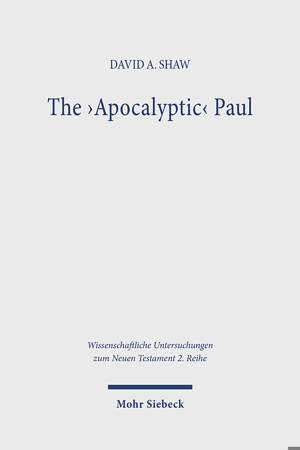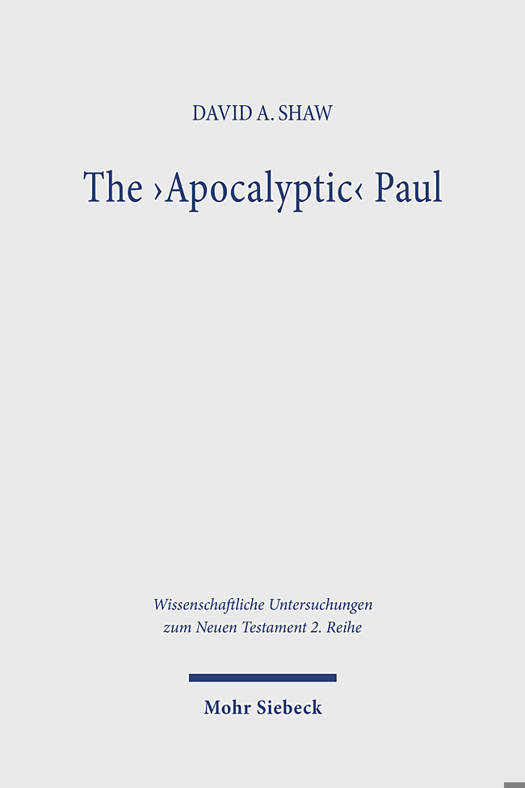
- Afhalen na 1 uur in een winkel met voorraad
- Gratis thuislevering in België vanaf € 30
- Ruim aanbod met 7 miljoen producten
- Afhalen na 1 uur in een winkel met voorraad
- Gratis thuislevering in België vanaf € 30
- Ruim aanbod met 7 miljoen producten
Zoeken
The 'Apocalyptic' Paul
An Analysis and Critique with Reference to Romans 1-8
David A Shaw
Paperback | Engels | Wissenschaftliche Untersuchungen zum Neuen Testament 2. Reihe | WUNT II | nr. 616
€ 72,95
+ 145 punten
Omschrijving
The most common critique of the so-called 'apocalyptic' reading of Paul has been terminological in nature, since the term is taken to imply a relationship to Jewish apocalypses. Yet advocates of the apocalyptic Paul use the term to signal a connection to an interpretive genealogy - primarily descended from Ernst Kasemann and J. Louis Martyn - and to affirm a set of theological convictions in relation to Paul's gospel. This invites a different engagement with the apocalyptic reading of Paul, leaving aside questions of nomenclature to explore those genealogical claims, and to examine how well those theological convictions are grounded in Paul. Therefore, David A. Shaw analyses contemporary accounts of the apocalyptic Paul in relation to the interpretive tradition with which they identify, and in relation to Romans 5-8, which has become the locus classicus of apocalyptic readings of Paul.
Specificaties
Betrokkenen
- Auteur(s):
- Uitgeverij:
Inhoud
- Aantal bladzijden:
- 207
- Taal:
- Engels
- Reeks:
- Reeksnummer:
- nr. 616
Eigenschappen
- Productcode (EAN):
- 9783161617003
- Verschijningsdatum:
- 1/10/2024
- Uitvoering:
- Paperback
- Formaat:
- Trade paperback (VS)
- Afmetingen:
- 231 mm x 155 mm
- Gewicht:
- 3755 g

Alleen bij Standaard Boekhandel
+ 145 punten op je klantenkaart van Standaard Boekhandel
Beoordelingen
We publiceren alleen reviews die voldoen aan de voorwaarden voor reviews. Bekijk onze voorwaarden voor reviews.











